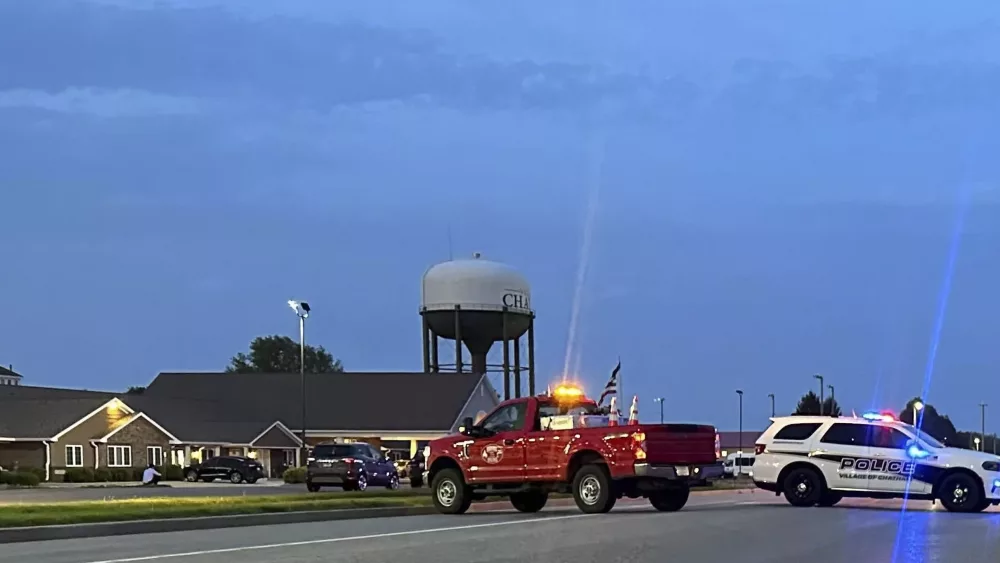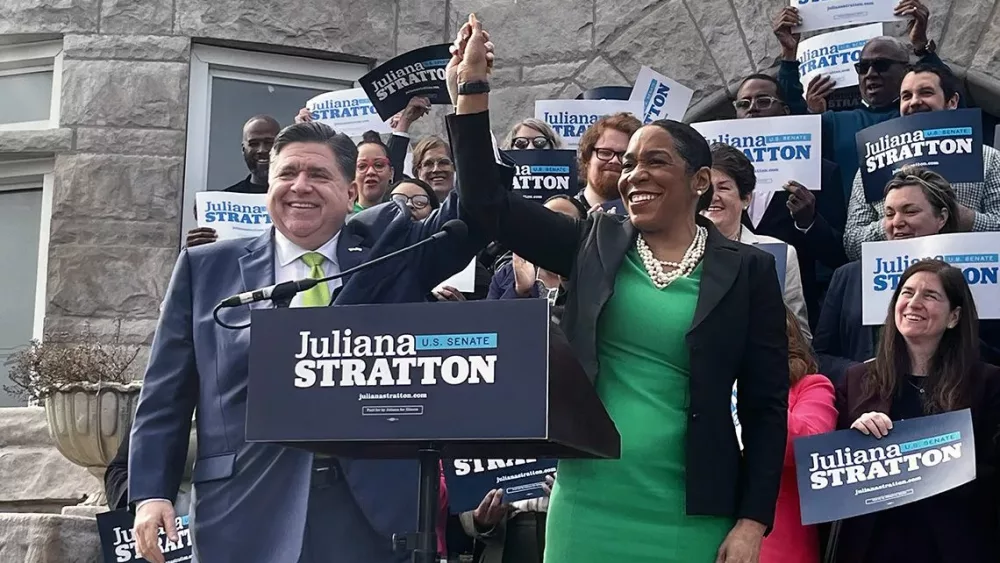Illinois Gov. J.B. Pritzker delivers his state budget address, Wednesday, Feb. 19, 2020, at the Illinois State Capitol in Springfield, Ill. (Justin L. Fowler/The State Journal-Register via AP)
SPRINGFIELD, Ill. (IRN) — Gov. J.B. Pritzker said he won’t delay an increase in the state’s minimum wage, which he pushed for and signed into law during his first year as governor.
That state’s minimum will increase to $10 an hour on Wednesday.
Shortly after taking office in 2019, Pritzker enacted a phased increase to the state’s minimum wage to $15 an hour by 2025. The first of two increases was Jan. 1 of this year going from $8.25 to $9.25 an hour. The second increase this year is set for Wednesday.
When the COVID-19 pandemic hit in March, Pritzker closed large swaths of the state’s economy in an effort to slow the spread of COVID-19 and to keep hospitals from being overwhelmed with coronavirus cases. He used his executive authority to suspend or postpone several things, such as evictions or licensure fee increases and even the state’s tax filing deadline.
On Friday, the state entered Phase 4 of the governor’s five-phase reopening plan. Phase 4 allows many businesses to open with fewer restrictions, but there are capacity limits for restaurants, theaters and other businesses. Businesses will have to comply with the new $10 an hour minimum wage starting Wednesday.
“We wish Governor Pritzker and the General Assembly had acted on our call to delay the minimum wage increase on July 1,” said Mark Grant, Illinois state director of the National Federation of Independent Business. “Our members appreciate the chance to grow customer activity and optimistically hire more workers, but an immediate hike in wages could put a damper on bringing folks back into the workforce.”
State Sen. Dave Syverson, R-Rockford, said small businesses need some relief.
“Those that have suffered the most and that is dealing with maybe postponing the minimum wage, or rolling that back,” Syverson said.
Pritzker said the minimum wage increase was needed and he wouldn’t delay it.
“No,” Pritzker said. “We have a lot of challenges in this state but one of them is people living in poverty and working the very low minimum wage that we’ve had.”
“We’ve provided relief funds for small businesses across the state and we’re going to continue to do that but it’s not to the determinant of the people who are working-class people of our state, it’s to the benefit of them,” Pritzker said.
Syverson said that’s just one extra cost employers are gonna be hit with.
“If unemployment rates double and minimum wage goes up at a time when businesses are struggling that’s going to be very difficult to try and jumpstart,” Syverson said.
Another issue is one of business liability during the pandemic.
“When we surveyed our members last month, most of them said they were concerned about the threat of lawsuits that try to exploit the pandemic,” Grant said.








